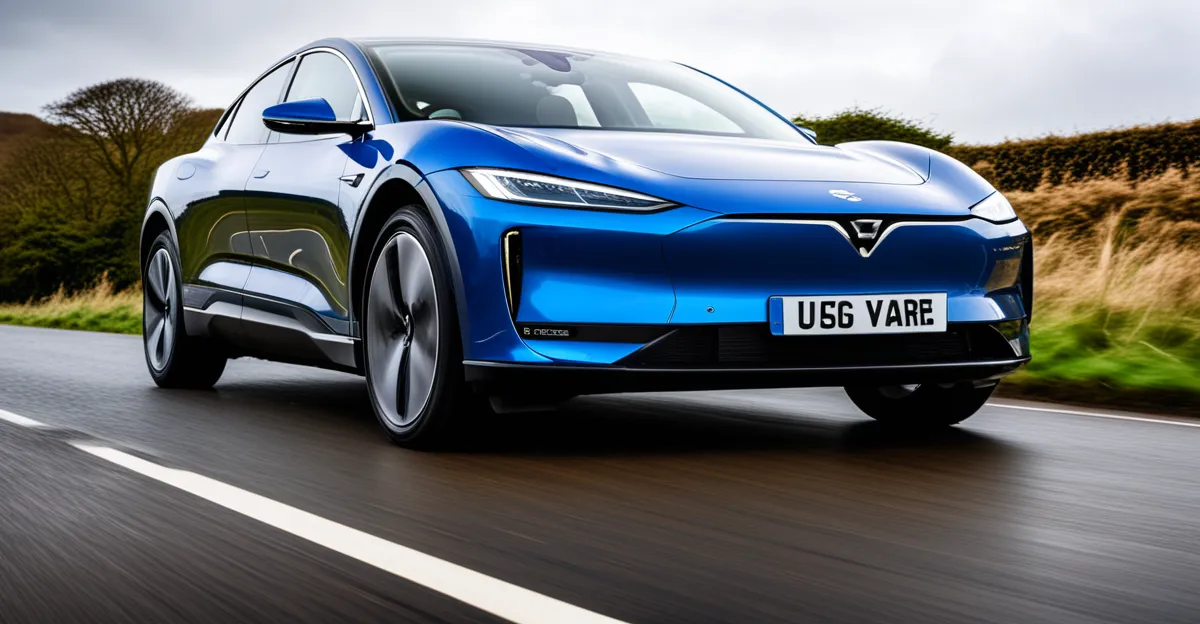UK Government Initiatives Driving Electric Vehicle Adoption
The UK electric vehicle policy has become a cornerstone in accelerating EV adoption, tightly linked to the nation’s ambitious net zero targets. Central to this policy are government incentives such as grants for EV purchases and subsidies for installing home charging points. These incentives lower upfront costs, making electric cars financially accessible to a broader audience and encouraging both consumer uptake and investment by manufacturers.
Crucially, the UK has set firm phase-out dates for petrol and diesel cars, targeting a complete ban on new internal combustion engine vehicles by 2030. This regulatory framework compels manufacturers and consumers to shift toward electric vehicles, ensuring alignment with environmental goals. The government’s commitment also supports infrastructure development and innovation, tying into the broader climate policy that promotes sustainable transport solutions.
In the same genre : How are UK car manufacturers addressing supply chain challenges?
This multi-faceted approach combines financial encouragement and regulatory pressure to cultivate a thriving EV market. By coordinating EV targets with supportive policies, the UK government drives substantial momentum in transitioning away from fossil fuels, helping to reduce emissions and improve air quality nationwide.
Transformation in Domestic Automotive Manufacturing
The UK car manufacturing sector is undergoing a profound shift due to the rising demand for electric vehicles. Traditional production lines focused on internal combustion engines (ICE) are being retooled to prioritize EV production, reflecting the broader impact of the UK electric vehicle policy. Manufacturers are investing heavily to adapt factories and supply chains, ensuring they meet new technical specifications and volumes required for EVs.
This might interest you : What are the latest innovations in the UK electric vehicle market?
For example, Jaguar Land Rover has committed to becoming an all-electric brand by 2030, reconfiguring its facilities accordingly. Similarly, Nissan’s Sunderland plant, one of the UK’s largest, has increased EV output, supporting government incentives and aligning with EV targets that accelerate the transition away from petrol and diesel cars.
These shifts highlight the automotive industry impact driven by regulatory frameworks and net zero ambitions. As manufacturing adapts, job roles and skills evolve, requiring advanced engineering for electric drivetrains and battery assembly. The transformation not only supports greener transport but also positions the UK as a key player in the global EV market, underpinned by supportive UK electric vehicle policy and strong government incentives.
Technological Advancements Accelerated by EV Transition
The surge in EV technology drives critical improvements in battery innovation and overall energy efficiency. Advances in lithium-ion battery chemistry have significantly increased capacity and reduced charging times, addressing common consumer concerns about range and convenience. This progress is integral to meeting EV targets and sustaining UK electric vehicle policy goals.
Research and development efforts have intensified, fostering collaborations between manufacturers, universities, and tech firms. These partnerships accelerate breakthroughs not only in battery tech but also in automotive engineering advancements, including lighter materials and more efficient electric drivetrains.
Software integration plays an increasing role in modern EVs. Enhanced vehicle connectivity, autonomous features, and advanced safety systems now complement mechanical improvements. These technologies contribute to a superior driving experience while supporting the UK’s ambitions to phase out petrol and diesel cars.
Continued innovation ensures that electric vehicles remain competitive and viable for mass adoption. By combining government incentives that boost investment with rapid technological progress, the UK strengthens its position in the evolving global EV market.
Expansion of Electric Vehicle Infrastructure
The expansion of EV charging infrastructure is crucial to supporting the UK’s surge in electric vehicle adoption. As demand for EVs grows, the availability of accessible and reliable charging points has become a key factor influencing consumer confidence and usage patterns. Both public charging networks and private installations are expanding rapidly, aided by significant UK transport investment dedicated to bridging infrastructure gaps.
Strategic investments focus on enhancing the grid capacity to handle increased load while deploying fast chargers in urban centers and highways to reduce charging times. In addition, partnerships between government bodies, energy providers, and private companies are vital for scaling infrastructure efficiently and cost-effectively. These collaborations help address challenges such as the uneven distribution of chargers, especially in rural areas where uptake tends to lag.
Ensuring widespread access to charging stations not only supports existing EV owners but also aligns with UK electric vehicle policy objectives, accelerating the phase-out of petrol and diesel cars. Continuous infrastructure development, combined with government incentives, creates a robust foundation necessary for meeting the country’s EV targets and ambitious net zero goals.



